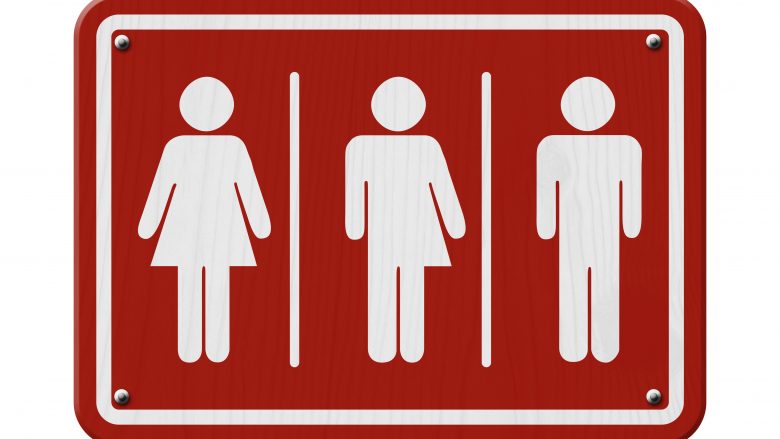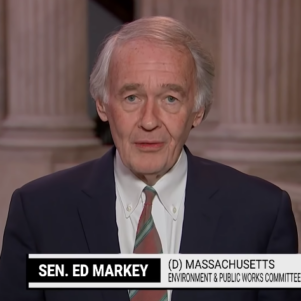Shutting The Back Door: How One Mother Sees Proposed Ban in Massachusetts on ‘Conversion Therapy’ for Sexual Orientation, Gender Identity
By Matt McDonald | May 29, 2018, 23:28 EDT

Karen’s 15-year-old daughter was always the quietest of her children.
When she was younger she showed signs of selective mutism, an anxiety disorder that causes trouble speaking in settings that aren’t comfortable. Karen attributes the condition to physical and mental abuse that she says her daughter witnessed and suffered at the hands of another family member.
Karen knew her daughter had problems – everyone in the family had problems. But when her daughter said around September 2015 that she had met someone online who had similar feelings and explained to her where the feelings came from, Karen was perplexed.
“She said, ‘Well, I decided that I’m gay and transgender.’ I didn’t know what that meant,” Karen tells New Boston Post. “I knew what gay meant, but I didn’t know about transgender. Figured she was confused.”
Her daughter, Karen learned, acknowledged that she had been born a female, and she said she was physically attracted to boys. But mentally, she said, she identified as a male – and as an emotionally-male person attracted to males, she had come to believe she was a transgender homosexual. Her mother brought her to a support group, where teen-agers who identified as transgender encouraged her to get hormone treatment to begin transitioning to life as a male.
Karen, who lives in a community northwest of Boston, agreed to participate in this story on the conditions that it not state her full name or the municipality where she lives and that her daughter not be identified by name. She is not in regular contact with her daughter, who went to live several months ago with another relative, largely over their continuing disagreement about how to deal with her daughter’s condition.
Karen still has legal custody, and she recently successfully fought in family court against a request for her daughter to begin receiving hormone treatment against Karen’s wishes. Legally that will become a moot point later this year, when her daughter turns 18 and can therefore make her own decisions.
But Karen is bothered by a bill before the Massachusetts Legislature that would ban therapists from offering to children so-called “conversion therapy,” in which a therapist tries to help change a patient’s stated sexual orientation or gender identity.
“I think it’s awful,” Karen said. “I mean, I want to raise my children, all of them, in the way that I see fit, and I think the state is overstepping its boundaries.”
The law in Massachusetts is currently silent on conversion therapy. But Massachusetts House Bill 4014 would make it illegal for any licensed mental health therapist in the state to “engage in sexual orientation and gender identity change efforts with a patient less than 18 years of age,” to the point where a therapist could lose his license for doing so.
It would also add “being subjected to sexual orientation and gender identity change efforts” to the list of circumstances where a so-called “mandated reporter” must notify authorities for a possible investigation by the state – meaning it could start a process where a parent who seeks conversion therapy for a child could have that child taken away by the state’s social-services agency. (A mandated reporter under existing state law includes a therapist, doctor, nurse, dentist, teacher, or cleric, among others, although clerics are exempted in cases where they learn something “in a confession or similarly confidential communication.”)
Other circumstances requiring mandated reporters to notify authorities for possible investigation of parents or guardians include sexual abuse, malnutrition, and drug addiction.
In November, the bill got a favorable recommendation from the House Committee on Health Care Financing, with just one representative voting against it. The bill is currently before the House Ways and Means Committee, which could vote on it at any time and send it to the floor for a vote by the full body. Some observers say they expect the committee to act on it within the next several weeks.
Supporters of the bill say it’s a way to protect children and their parents from unnecessary and potentially harmful therapy that can’t work and shouldn’t be tried. They say conversion therapy, which is also known as “reparative therapy,” tries to fix something that isn’t broken and that is part of the core of a person who feels attracted to members of the same sex or who identifies with a gender other than the biological sex the person was born with.
Carl Sciortino, a former state representative who wrote the original draft of the bill several years ago, says protecting children and parents from fraudulent claims and abuse is the point of the legislation.
“If someone says, ‘I’m gay’ or ‘I’m tran’ and a therapist says ‘I can make you straight,’ that’s a false claim. And that’s what ends up doing real damage,” said Sciortino, executive director of the AIDS Action Committee, the public health division of Fenway Health, of Boston, which focuses on the health needs of people who are attracted to members of the same sex, attracted to both sexes, or identify as transgender. “The point of this bill is that if a young person has an identity and is being told by a so-called therapist that they can change their identity, that is a false hope and abusive and shouldn’t be allowed by licensed professionals in this state.”
Opponents of the bill disagree sharply: They think homosexuality and transgenderism are negative variations of human sexuality with potentially harmful consequences, that in at least some cases they may be mutable, and that parents ought to be able to make their own choices about what kind of emotional treatment they seek for their children.
Michelle Cretella, president of the American College of Pediatricians, which encourages nuclear families headed by a man and a woman and discourages sexual activity outside of marriage, says homosexuality and transgenderism “are highly changeable during adolescence.”
“Sexual orientation and gender identity are not innate or immutable. Ethical licensed therapists explore and heal potential factors underlying unwanted attractions or beliefs. These factors may include sexual abuse, family and peer dynamics, social media use, and social contagion,” Cretella said in an email message. “Therapy bans will criminalize these therapists and prevent them from saving children’s lives.”
In the midst of a recent trend, Massachusetts is not at the forefront but may be reaching for the pinnacle. Eleven other states have banned conversion therapy, including New Hampshire earlier this month. But the Massachusetts bill is unusual, says Andrew Beckwith, president of the Massachusetts Family Institute.
“Similar legislation has been passed in a number of states, but this is the first time that helping your child feel comfortable in their own body could brand you a child abuser,” said Beckwith, whose organization advocates for Judaeo-Christian family values on Beacon Hill. “This is a bill that would allow the state to take away your daughter and make her someone else’s son.”
But Sciortino says the bill is necessary and humane.
“I think our opponents are delusional and adding to the culture of child abuse if they cannot accept that there are gay people in this world and transgender people in this world and we are who we are and no amount of quackery or child abuse will change that,” Sciortino said.
As for taking a child away from parents if they try to change their child’s sexual orientation or gender identity, Sciortino said state officials don’t break up families lightly, and that only in certain cases might it be necessary.
“That’s why we have judges and courts,” Scirotino said. “In this case, if somebody were being exposed to an abusive practice – in this case, abusive therapy – it makes sure that that child has the protection of the mandated reporter system, to see if an investigation is warranted.”
Supporters of banning conversion therapy have raised jarring examples to make their case. One homosexual man who testified before a committee of the Massachusetts Legislature in June 2017 told of undergoing painful electric shock therapy as a teen-ager meant to try to stimulate negative responses to his attraction to other males. Another homosexual man described therapists in various states giving him Viagra pills and pornography and recommending auto-erotic techniques to try to stimulate an attraction to females he didn’t feel. In both cases, the therapy failed, and each man felt damaged by it.
But opponents of the proposed ban note that the Massachusetts bill doesn’t mention any particular techniques. They argue it would ban even what they call “talk therapy” – a therapist talking with a patient about ways to approach life – if the therapist is hoping to change same-sex attractions or different-gender identity.
“If you’re really concerned about stopping shock therapy, write a bill that mentions shock therapy,” Beckwith said. “It’s hard to believe we’ve come to the point where artificial hormone injections are seen as perfectly fine, and body-affirming counseling is labeled child abuse.”
Limiting Options?
Karen once took her daughter to a Christian counselor. It lasted only one session, because her daughter didn’t want to participate further.
Karen didn’t seek out the therapist to try to change her daughter’s gender identity but rather to improve their relationship. But what if she had wanted a therapist to try to persuade her daughter that a feminine identity rightly corresponds to her female body?
That query is all the more important because Karen questions whether her daughter is actually transgender. Her daughter has been diagnosed with depression and anxiety, and Karen says she thinks she may be trying to match her symptoms to transgenderism, in hopes of finding some way to feel better. But Karen doesn’t think trying to live as a male will solve her daughter’s problems – and she worries that her daughter may regret it some years from now if she changes her mind about her identity but finds that hormone treatment has rendered her physically unable to have children.
Increasingly, though, that’s the standard approach.
Karen recalls a discussion with one of the parents of a child identifying as transgender.
“And he said, ‘Either you accept it or they kill themselves. So just accept it’,” Karen said. “Well, I don’t accept it. I think she’s had undue influence.”
Karen’s daughter has expressed suicidal thoughts in therapy, which led to a stay in a hospital. Most observers agree that suicidal tendencies appear to be higher among homosexual adolescents than among heterosexual adolescents, and higher still among adolescents identifying as transgender.
A major sticking point between the two sides is whether that’s because too many people don’t accept and affirm homosexuality and transgenderism, or because adolescents who feel attracted to members of the same sex or identify with a different gender have underlying emotional problems that leave them more vulnerable to harming themselves.
Karen says she’s worried about her daughter’s ability to cope with life. But she disagrees with therapists she has spoken with who she believes validate the feelings of troubled teen-agers without properly evaluating them.
“I don’t know, I don’t feel like people have a moral compass any more. I don’t want my daughter to hurt herself. I don’t want her to kill herself. I just want to see her on a path to happiness, and I believe the path to happiness is accepting who you are,” she said.
Accepting-who-you-are is at the heart of the conflict over the conversion therapy ban. Supporters of the ban describe conversion therapy as a hopeless effort to get people to not accept who they are.
It’s a common reaction. For supporters of the bill, one of the incentives for passing it is that even many liberal-minded people who consider themselves tolerant and accepting have a different reaction when it hits close to home.
Allison Scobie-Carroll, senior director of social work and family services at Boston Children’s Hospital and president of the Massachusetts chapter of the National Association of Social Workers, was one of three administrators at Boston Children’s Hospital who testified in favor of the conversion therapy ban when it came before the Joint Committee on Children, Families, and Persons With Disabilities of the Massachusetts Legislature in June 2017.
Using the term “cis-gendered,” which refers to a person’s gender aligning with the person’s biological sex (masculine for male, feminine for female), she told legislators she has seen many parents in her clinical practice who don’t mind other people’s sexual and gender inclinations but feel differently when it’s their own child:
“In my practice treating adolescents and young adults who are LGBTQ, I have regular occasion to work with their parents. And one of the things that happens for all of these parents, almost universally, every single parent that I work with, is that they do in fact go through a period of time where they feel – you know, even those who feel that LGBTQ folks are among their friends, those who are well-educated, have a strong commitment to maybe more progressive-leaning thoughts about equal rights, et cetera — still go through a period of time where they are in disbelief, where they are in denial, and then they sometimes wish that their child was just a cis-gendered straight person because they believe it will lead to an easier time, a better life somehow. And we really need to help them move through that. It is a phase. People do move through that, and land someplace where they can truly accept their child for who they are.”
But Karen doesn’t see herself as going through a phase. She hopes her daughter is going through a phase.
She is convinced that embracing a masculine gender identity isn’t good for her daughter and will hurt her.
Karen is a church-going Catholic, and she acknowledges that her religious beliefs influence how she views human sexuality.
Critics, including some of her own adult children, have accused Karen of “trying to pray the gay away” and of being a “hater.”
“And it’s like, no, I love my daughter. This isn’t about hate. It’s about steering my daughter in the correct direction,” Karen said. “If God had intended her to be a boy, he would have made her a boy.”











